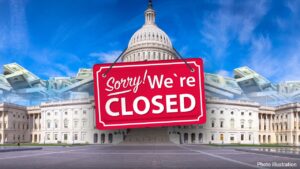As drone technology continues to advance, experts are cautioning Congress about potential threats to airspace security if left unregulated. During a recent U.S. House Homeland Security Subcommittee hearing, industry experts highlighted the risks posed by unmanned aircraft systems (UAS).
Tom Walker, CEO of DroneUp, emphasized that more than half of all near misses with commercial and general aviation involve drones. He called for the establishment of a nationalized system that can identify each drone, pilot, and mission across the country to ensure airspace safety.
Currently, there is no centralized database that can identify drones and their pilots in real-time, leading to security gaps around critical infrastructure and a lack of accountability regarding airspace regulations. Despite the implementation of Remote ID, which acts as a “digital license plate” for drones, it can be easily bypassed to conceal a pilot’s identity.
Several incidents involving drones interfering with law enforcement efforts have been reported, including collisions with firefighting and rescue aircraft. These incidents highlight the urgent need for a centralized system to monitor unlawful drones and ensure airspace safety.
Walker stressed the importance of collaboration between UAS experts and authorities to establish effective regulations that address airspace concerns. Without adequate measures in place, the country’s airspace remains vulnerable to security threats posed by drones. “The answer is nothing.”
Border state law enforcement agencies are gearing up to shoot down ‘weaponized’ drones used for smuggling drugs. The plan is to create an airspace database that includes areas like the southern border and prisons across the country to combat criminal smuggling attempts.
According to Walker, who is involved in the initiative, prisons are not just dealing with drugs but also other dangerous items like knives, guns, and explosives. The situation is already critical and has resulted in loss of lives. However, little has been done so far other than policy changes.
In a Senate Judicial Committee hearing, Steven Willoughby, DHS director of counter-UAS program management, highlighted the issue of cartels using drones for illegal activities at the border. He emphasized the need for action to prevent potential attacks on Americans or law enforcement in the border region.
The introduction of a real-time database of UAS flights nationwide could facilitate the coexistence of drones and manned aircraft, strengthening the country’s ability to protect domestic and international assets while serving its citizens.
Walker expressed the importance of integrating manned and unmanned aircraft to enhance safety measures, protect borders, and provide better services to the public.
Author Julia Bonavita, a U.S. Writer for Fox News Digital and a Fox Flight Team drone pilot, can be followed on all platforms at @juliabonavita13 for more updates and story tips.





